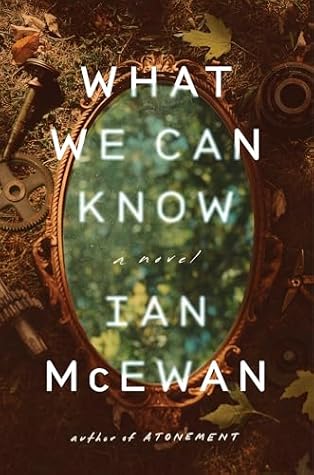More on this book
Community
Kindle Notes & Highlights
I’d like to shout down through a hole in the ceiling of time and advise the people of a hundred years ago: if you want your secrets kept, whisper them into the ear of your dearest, most trusted friend. Do not trust the keyboard and screen. If you do, we’ll know everything.
Misquoting – not St Augustine as I thought, but the great twentieth-century philosopher, Wittgenstein – she says, whereof you do not know, thereof you must be silent.
What brings our students round to the beginning of a mature understanding of history and an appreciation of what the past has imagined is – simply – detail.
I’ve come to appreciate that our period of study might be described as a sewer. I might not want to live in it, but I wanted her to accept that sections were majestic feats of design and engineering mastery.
The imagined lords it over the actual – no paradox or mystery there. Many religious believers do not want their God depicted or described. Happiness is ours if we do not have to learn how our electronic machines work. The characters we cherish in fiction do not exist. As individuals or nations we embellish our own histories to make ourselves seem better than we are. Living out our lives within unexamined or contradictory assumptions, we inhabit a fog of dreams and seem to need them.
I was shocked and wondered if an early symptom of ageing was fretting about and caring for the natural world.
It was the business of other people, of our frail civilisation, to keep me sheltered and warm, hydrated and fed. We all had our specialisations, our own particular talents. The others could rely on me for mine – for what? Retrieving a lost poem and unhinging myself in the process.
A million historical movies, novels and serious histories expressed our yearning to keep the past with us. Kind or cruel, it haunted us, and its ghosts, unlike most, were real.
Francis liked to quote T. S. Eliot’s ‘Teach us to care and not to care’. Sonorous lines, but empty, for no one ever needed that lesson. We can’t care. We are trapped between the dead and the unborn, the past ghosts and the future ghosts, and they matter less.
A nation is so large and full of things and ideas that it takes a lot of determined folly to ruin it all. So with the planet. We wrecked much of it, but not everything.
In addition, guilt and remorse are useful aids to memory. I use the journals mostly to remind myself of the sequence of events, on which memory is notoriously weak. The past, jumbled in the mind, survives in its own special tense, a form of ahistorical present. A journal, whatever its quality, fixes events like beads on a string.
To be elsewhere! It was not true that travel was a false god and that you took your troubles with you and nothing could change. There was the unimaginable and unforeseen thrill of being away, of renewal, and remembering that the world was huge and various, and you and your concerns were small.
As we walked up and down the deck, or stopped to watch passengers boarding, I delighted in the afternoon sun on my bare arms and felt capable, given life’s brevity, of ruthless insistence on my small share of the world’s pleasures. I had suffered and I was owed.


